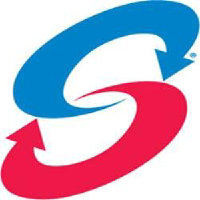
Comfort Systems USA Inc
NYSE:FIX


| US |

|
Johnson & Johnson
NYSE:JNJ
|
Pharmaceuticals
|
| US |

|
Berkshire Hathaway Inc
NYSE:BRK.A
|
Financial Services
|
| US |

|
Bank of America Corp
NYSE:BAC
|
Banking
|
| US |

|
Mastercard Inc
NYSE:MA
|
Technology
|
| US |

|
UnitedHealth Group Inc
NYSE:UNH
|
Health Care
|
| US |

|
Exxon Mobil Corp
NYSE:XOM
|
Energy
|
| US |

|
Pfizer Inc
NYSE:PFE
|
Pharmaceuticals
|
| US |

|
Palantir Technologies Inc
NYSE:PLTR
|
Technology
|
| US |

|
Nike Inc
NYSE:NKE
|
Textiles, Apparel & Luxury Goods
|
| US |

|
Visa Inc
NYSE:V
|
Technology
|
| CN |

|
Alibaba Group Holding Ltd
NYSE:BABA
|
Retail
|
| US |

|
3M Co
NYSE:MMM
|
Industrial Conglomerates
|
| US |

|
JPMorgan Chase & Co
NYSE:JPM
|
Banking
|
| US |

|
Coca-Cola Co
NYSE:KO
|
Beverages
|
| US |

|
Walmart Inc
NYSE:WMT
|
Retail
|
| US |

|
Verizon Communications Inc
NYSE:VZ
|
Telecommunication
|
Utilize notes to systematically review your investment decisions. By reflecting on past outcomes, you can discern effective strategies and identify those that underperformed. This continuous feedback loop enables you to adapt and refine your approach, optimizing for future success.
Each note serves as a learning point, offering insights into your decision-making processes. Over time, you'll accumulate a personalized database of knowledge, enhancing your ability to make informed decisions quickly and effectively.
With a comprehensive record of your investment history at your fingertips, you can compare current opportunities against past experiences. This not only bolsters your confidence but also ensures that each decision is grounded in a well-documented rationale.
Do you really want to delete this note?
This action cannot be undone.

| 52 Week Range |
195.89
504.12
|
| Price Target |
|
We'll email you a reminder when the closing price reaches USD.
Choose the stock you wish to monitor with a price alert.

|
Johnson & Johnson
NYSE:JNJ
|
US |

|
Berkshire Hathaway Inc
NYSE:BRK.A
|
US |

|
Bank of America Corp
NYSE:BAC
|
US |

|
Mastercard Inc
NYSE:MA
|
US |

|
UnitedHealth Group Inc
NYSE:UNH
|
US |

|
Exxon Mobil Corp
NYSE:XOM
|
US |

|
Pfizer Inc
NYSE:PFE
|
US |

|
Palantir Technologies Inc
NYSE:PLTR
|
US |

|
Nike Inc
NYSE:NKE
|
US |

|
Visa Inc
NYSE:V
|
US |

|
Alibaba Group Holding Ltd
NYSE:BABA
|
CN |

|
3M Co
NYSE:MMM
|
US |

|
JPMorgan Chase & Co
NYSE:JPM
|
US |

|
Coca-Cola Co
NYSE:KO
|
US |

|
Walmart Inc
NYSE:WMT
|
US |

|
Verizon Communications Inc
NYSE:VZ
|
US |
This alert will be permanently deleted.
 Comfort Systems USA Inc
Comfort Systems USA Inc
Comfort Systems USA Inc
Investor Relations
Founded in 1997, Comfort Systems USA Inc. has crafted a niche in the HVAC services sector, growing into a national behemoth while maintaining a local touch. The company, by strategically acquiring and integrating numerous regional HVAC businesses, has constructed a sprawling network of service centers across the United States. This network allows them to cater to the diverse heating, ventilation, and air conditioning needs of both commercial and industrial clients. Each acquisition isn't merely an expansion in size, but an increase in the treasure trove of local expertise and relationships, permitting Comfort Systems USA to leverage the intimate knowledge these smaller firms have of their communities while still benefiting from the efficiencies of scale and centralized operations.
The company earns its revenue through a blend of project-based contracts and maintenance agreements, providing design, installation, and ongoing service for HVAC systems. The business model pivots on a balanced combination of one-time installation revenues and recurring maintenance contracts, the latter providing a steady income stream and fostering long-term relationships with customers. This dual approach not only ensures a diversified revenue stream but also strategically positions Comfort Systems USA to pivot as customer needs evolve, allowing them to maintain a steady presence in the US market regardless of economic fluctuations. Through these adept strategies, Comfort Systems USA has not just grown; it has thrived, maintaining a deft equilibrium between expansion and sustainable, reliable service.

Founded in 1997, Comfort Systems USA Inc. has crafted a niche in the HVAC services sector, growing into a national behemoth while maintaining a local touch. The company, by strategically acquiring and integrating numerous regional HVAC businesses, has constructed a sprawling network of service centers across the United States. This network allows them to cater to the diverse heating, ventilation, and air conditioning needs of both commercial and industrial clients. Each acquisition isn't merely an expansion in size, but an increase in the treasure trove of local expertise and relationships, permitting Comfort Systems USA to leverage the intimate knowledge these smaller firms have of their communities while still benefiting from the efficiencies of scale and centralized operations.
The company earns its revenue through a blend of project-based contracts and maintenance agreements, providing design, installation, and ongoing service for HVAC systems. The business model pivots on a balanced combination of one-time installation revenues and recurring maintenance contracts, the latter providing a steady income stream and fostering long-term relationships with customers. This dual approach not only ensures a diversified revenue stream but also strategically positions Comfort Systems USA to pivot as customer needs evolve, allowing them to maintain a steady presence in the US market regardless of economic fluctuations. Through these adept strategies, Comfort Systems USA has not just grown; it has thrived, maintaining a deft equilibrium between expansion and sustainable, reliable service.





























 You don't have any saved screeners yet
You don't have any saved screeners yet
